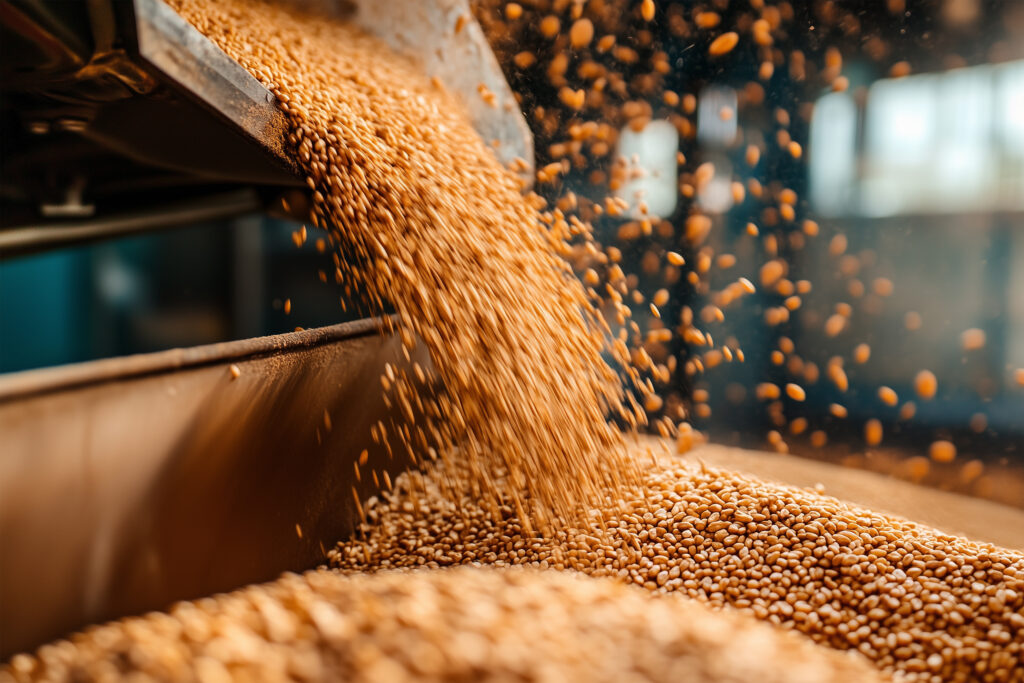Agrisciences
Our specialized team operates across the entire value chain, including seed genomics, crop nutrition and protection, organics, water and irrigation, biofuel production and distribution, precision agriculture, information technology, aquaculture, vertical and urban farming, processing and distribution, supply, storage, retail and marketing, equipment manufacturing, as well as finance, investment, and lending. Our services are interconnected with key sectors such as energy, infrastructure, and life sciences and healthcare, enabling integrated solutions that meet the legal and business needs of our clients
Agrisciences
Our specialized team operates across the entire value chain, including seed genomics, crop nutrition and protection, organics, water and irrigation, biofuel production and distribution, precision agriculture, information technology, aquaculture, vertical and urban farming, processing and distribution, supply, storage, retail and marketing, equipment manufacturing, as well as finance, investment, and lending. Our services are interconnected with key sectors such as energy, infrastructure, and life sciences and healthcare, enabling integrated solutions that meet the legal and business needs of our clients

Agribusiness is one of the driving forces of the Brazilian economy, accounting for a significant share of the country’s GDP and exports. The combination of vast natural resources and technological innovation offers unparalleled potential for growth and sustainability in the sector.However, few industries in Brazil are as heavily regulated as agricultural and agro-industrial activities. With deep industry knowledge and a strong understanding of the legal nuances surrounding it, we aim to be more than advisors – we are strategic partners to our clients in defining strategies that maximize the profitability and sustainability of agribusiness operations in Brazil
Agribusiness is one of the driving forces of the Brazilian economy, accounting for a significant share of the country’s GDP and exports. The combination of vast natural resources and technological innovation offers unparalleled potential for growth and sustainability in the sector.However, few industries in Brazil are as heavily regulated as agricultural and agro-industrial activities. With deep industry knowledge and a strong understanding of the legal nuances surrounding it, we aim to be more than advisors – we are strategic partners to our clients in defining strategies that maximize the profitability and sustainability of agribusiness operations in Brazil
Our take on the industry
Agribusiness is the backbone of the Brazilian economy, accounting for approximately 23% of the country’s GDP and over 40% of its exports, positioning Brazil as one of the global leaders in the production and supply of agricultural goods. With a vast territory spanning roughly 8.5 million square kilometers, Brazil benefits from a unique ecological diversity that enables the cultivation of an extensive range of crops and products, from essential grains such as soybeans and corn to globally recognized meats and tropical fruits
In the global geopolitical and economic landscape, Brazil is strategically positioned to leverage its agricultural strengths. The country plays a key role in meeting the growing international demand for food, particularly as emerging markets seek food security and supply diversification. In this regard, Brazil stands as a reliable source, and its strategic trade agreements with international blocs amplify these opportunities, reinforcing the potential for expansion and deeper integration of Brazilian agribusiness into global value chains
It is also worth noting that agribusiness does not operate in isolation. It interacts significantly with several other essential sectors of the economy, such as energy, infrastructure, life sciences, and healthcare, creating an interconnected ecosystem that fosters innovation and efficiency. For example, the transition toward renewable energy sources, including biofuels, positions agribusiness as a key player in the sustainability agenda. At the same time, the integration of digital technologies and precision agriculture is redefining farming practices, leading to greater productivity and reduced waste — another crucial component of sustainable development
Within this context, the outlook for agribusiness in Brazil remains highly positive. Opportunities abound, supported by a regulatory framework that, while complex – particularly regarding foreign investment – provides a solid foundation for the legal certainty necessary to manage efficient and sustainable business operations
Our take on the industry
Agribusiness is the backbone of the Brazilian economy, accounting for approximately 23% of the country’s GDP and over 40% of its exports, positioning Brazil as one of the global leaders in the production and supply of agricultural goods. With a vast territory spanning roughly 8.5 million square kilometers, Brazil benefits from a unique ecological diversity that enables the cultivation of an extensive range of crops and products, from essential grains such as soybeans and corn to globally recognized meats and tropical fruits
In the global geopolitical and economic landscape, Brazil is strategically positioned to leverage its agricultural strengths. The country plays a key role in meeting the growing international demand for food, particularly as emerging markets seek food security and supply diversification. In this regard, Brazil stands as a reliable source, and its strategic trade agreements with international blocs amplify these opportunities, reinforcing the potential for expansion and deeper integration of Brazilian agribusiness into global value chains
It is also worth noting that agribusiness does not operate in isolation. It interacts significantly with several other essential sectors of the economy, such as energy, infrastructure, life sciences, and healthcare, creating an interconnected ecosystem that fosters innovation and efficiency. For example, the transition toward renewable energy sources, including biofuels, positions agribusiness as a key player in the sustainability agenda. At the same time, the integration of digital technologies and precision agriculture is redefining farming practices, leading to greater productivity and reduced waste — another crucial component of sustainable development
Within this context, the outlook for agribusiness in Brazil remains highly positive. Opportunities abound, supported by a regulatory framework that, while complex – particularly regarding foreign investment – provides a solid foundation for the legal certainty necessary to manage efficient and sustainable business operations

Opportunities
- Rising global demand
- Biotechnology innovation
- Expansion of international markets
- Carbon market
- Brazilian biodiversity and genetic heritage
Challenges
- Regulatory complexity
- Climate change
- Foreign capital
- Carbon market
- Exploitation of biodiversity and genetic heritage
Macrotrends
- Agricultural sustainability
- Digitalization and precision agriculture
- Integration of information systems
- Carbon market

Work Highlights
M&A among industry giants in Brazil
We advised one of the leading players in the agribusiness sector on the acquisition of one of the largest seed companies in Brazil. Our team conducted the due diligence process and structured and negotiated the definitive agreements for the transaction. We also worked closely with the client’s finance and strategy teams to identify synergies and growth opportunities arising from the combination of the portfolios
Land regularization
We advised on the land regularization of rural properties, assisting our investor client in securing ownership and possession rights — a critical step for the development of agricultural and rural infrastructure activities
Establishment of surface rights
We established a surface right, enabling the sustainable use of land in Bahia and Minas Gerais for agricultural purposes, as part of a biofuel production and carbon credit certification project
Concessions and PPPs for land access
We provide legal advisory services in the creation and implementation of concessions and public-private partnerships aimed at improving land access in agro-industrial projects, facilitating collaboration between the private sector and local communities. Our work focuses on developing solutions that foster sustainable growth and regional development. We strive to create an environment conducive to investment while respecting community needs and promoting corporate social responsibility
Work Highlights
M&A among industry giants in Brazil
We advised one of the leading players in the agribusiness sector on the acquisition of one of the largest seed companies in Brazil. Our team conducted the due diligence process and structured and negotiated the definitive agreements for the transaction. We also worked closely with the client’s finance and strategy teams to identify synergies and growth opportunities arising from the combination of the portfolios
Land regularization
We advised on the land regularization of rural properties, assisting our investor client in securing ownership and possession rights — a critical step for the development of agricultural and rural infrastructure activities
Establishment of surface rights
We established a surface right, enabling the sustainable use of land in Bahia and Minas Gerais for agricultural purposes, as part of a biofuel production and carbon credit certification project
Concessions and PPPs for land access
We provide legal advisory services in the creation and implementation of concessions and public-private partnerships aimed at improving land access in agro-industrial projects, facilitating collaboration between the private sector and local communities. Our work focuses on developing solutions that foster sustainable growth and regional development. We strive to create an environment conducive to investment while respecting community needs and promoting corporate social responsibility




















